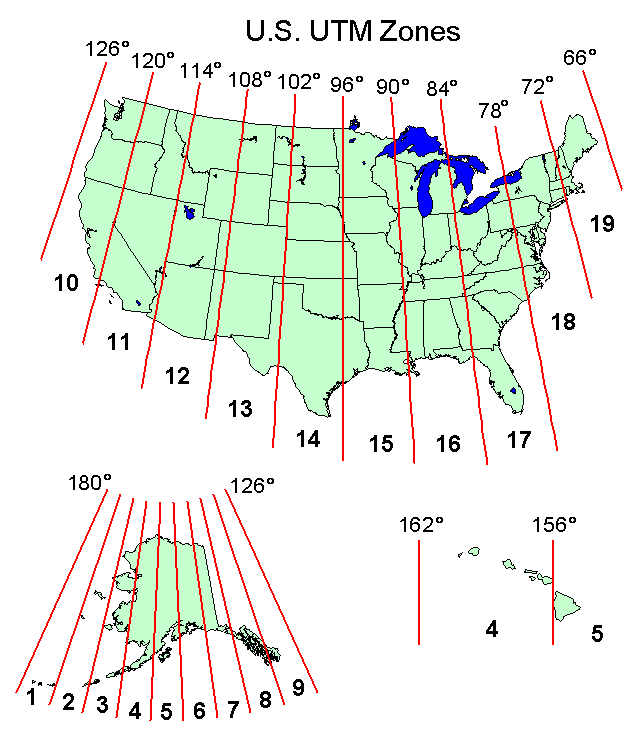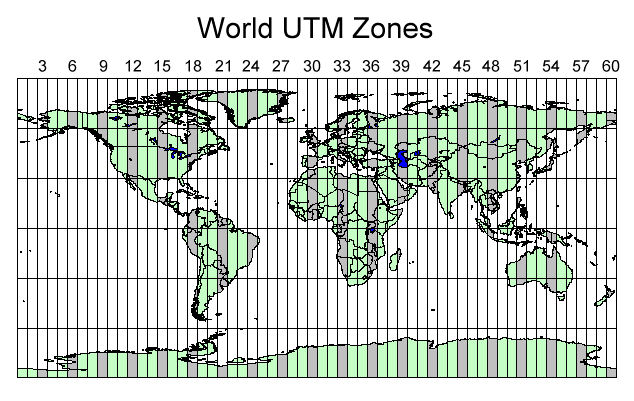UTM Coordinate System: Difference between revisions
From XMS Wiki
Jump to navigationJump to search
No edit summary |
No edit summary |
||
| Line 2: | Line 2: | ||
:* NAD (North American Datum) 1927 and NAD 1983 | :* NAD (North American Datum) 1927 and NAD 1983 | ||
:* HPGN (High Precision Geodetic Network, now known as HARN | :* HPGN (High Precision Geodetic Network, now known as HARN – High Accuracy Precision Network) | ||
The hemispheres are defined for non-NAD systems. The hemisphere cannot be changed for NAD systems (Northern, Western hemispheres). An additional HPGN zone must be defined for HPGN systems. | The hemispheres are defined for non-NAD systems. The hemisphere cannot be changed for NAD systems (Northern, Western hemispheres). An additional HPGN zone must be defined for HPGN systems. | ||
Revision as of 14:50, 19 April 2017
A UTM (Universal Transverse Mercator) system is a world-wide system defined in meters. The world is divided into 60 zones, 6 degrees of longitude, running from 84°N to 80°S latitude. Supported UTM systems include:
- NAD (North American Datum) 1927 and NAD 1983
- HPGN (High Precision Geodetic Network, now known as HARN – High Accuracy Precision Network)
The hemispheres are defined for non-NAD systems. The hemisphere cannot be changed for NAD systems (Northern, Western hemispheres). An additional HPGN zone must be defined for HPGN systems.
UTM zones for the southern hemisphere have a "false northing" of 10,000,000 meters at the equator with northings decreasing as you move south. This ensures all northings are positive in the southern hemisphere.
The US and World UTM Zones are shown below.
UTM Zones By Continent
Related Topics
Projections | |
|---|---|
| UTM: | Africa • Asia • Australia • Europe • North America • South America |
| State Plane: | Alaska • Hawaii • Mideast • Midwest • New England • Northwest • South Central • Southeast • Southwest • Virginia Area |
| Other | CPP • Geographic |

